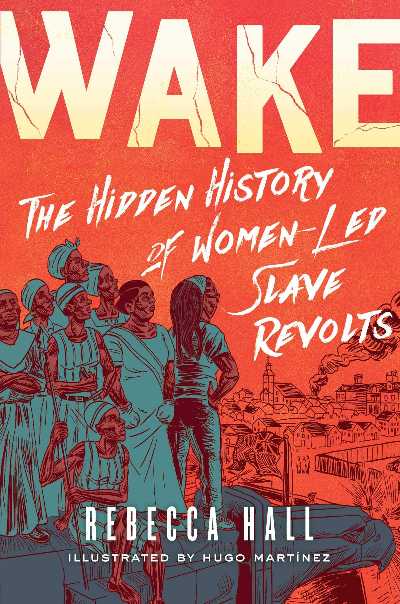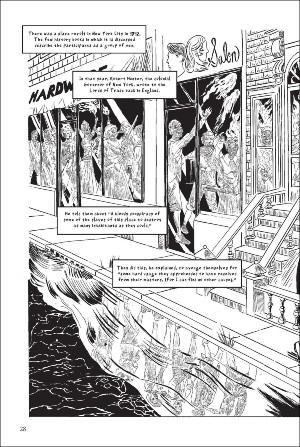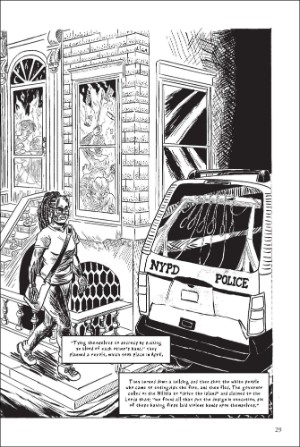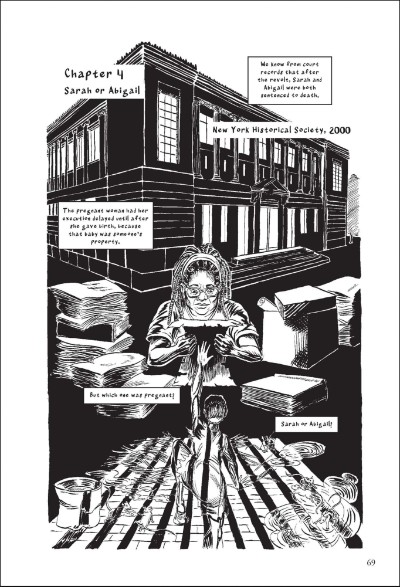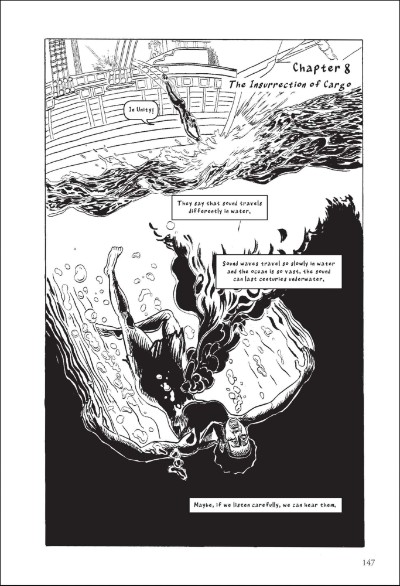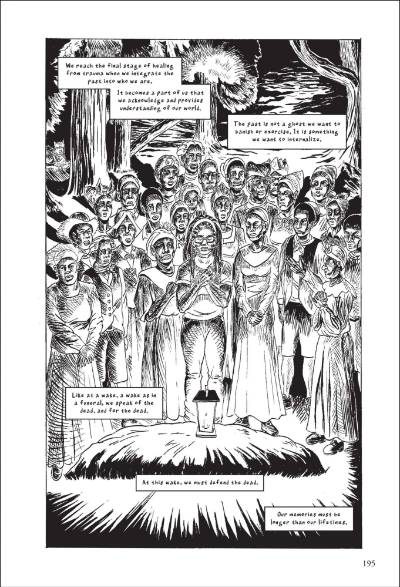The winner of the Broken Frontier Award for Best Graphic Non-Fiction in 2021, writer Rebecca Hall and artist Hugo Martinez’s Wake: The Hidden History of Women-Led Slave Revolts is not an easy read. Nor should it be, of course. This account of historian Hall’s investigations into “the erased, the unspoken, the blank spaces in the documents” is both a study of her meticulous forensic research to reinstate the place of Black women in the historical narratives from which they have been excised, and a platform to acknowledge said previously obscured stories in order to restore them to posterity.
Wake: The Hidden History of Women-Led Slave Revolts jumps between portraying Hall’s contemporary detective work sifting through international archives and shifts back through the centuries to depict the events she uncovers; an exercise not just in identifying participants but in shedding light on the circumstances behind their actions. Her early enquiries lead her to two New York slave revolts on 1712 and 1705 as she looks to discover the final fates of condemned slaves Sarah and Abigail who were sentenced to death for their part in an uprising, and the identity of a slave known only as “the Negro Fiend” who was burnt at the stake for her part in rebelling against and killing the slaver family who owned her.
While a linear account of these events would obviously have its own value what adds layers to Hall’s approach is that by juxtaposing the past with details of the historian’s process she is able to add her own social commentary in a measuredly paced and incremental way; bringing us more directly into the scope of what she unearths as we discover each revelatory piece of information alongside her. It goes without saying that the sheer unmitigated horror of those lives and experiences is a sobering read indeed. But Hall is also adept at reminding us of the undeniable legacy of racism that is engrained into every level of our contemporary social structures as a result.
That Hall’s own grandmother Harriet Thorpe Hall (whose own story is touched on in these pages) survived through slavery emphasises an uncomfortable historical immediacy that many in positions of privilege would no doubt desire to distance themselves from. Indeed, as Hall’s travels turn to the UK and investigating slave ship revolts that denial is further underlined in a section where insurance company Lloyds of London refuse her access to their archives. Controlling and censoring information about their own role in insuring the slave trade presumably being of far more importance to them than transparency and the truth.
Given such realities as maritime slave uprisings being described as “insurrection of cargo” – an appalling term that is is a self-evidently brutal indictment on the atrocity of human lives being treated as commodities – perhaps it is unsurprising that such institutions attempt to eschew responsibility for their pasts. Here Hall reveals how slave ship rebellion was far more prevalent on ships with a high percentage of women slaves who were instrumental in that dissent, and builds speculative but informed narratives about the experiences of the Black women involved.
Hugo Martinez’s clearly intensively researched art has a loose realism that is most appropriate in rooting the story in its dual timeframes and reminding the reader how the past shapes the present in ways we may not consciously perceive. Hall contrasted against historical imagery, for example, or the ghosts of centuries past haunting the streets of today. His use of multiple perspectives and ever evolving page structures in the action sequences gives a requisite sense of the chaotic and the frenetic, and in those sections where events are depicted with a limited need for narration, Hall wisely allows Martinez’s visual storytelling to sit at the forefront.
Concluding with a powerful and quietly defiant forward-looking coda, Wake: The Hidden History of Women-Led Slave Revolts is an essential piece of graphic history/journalism that brings untold tales to the page while giving due recognition to the lives and agency of the Black women it spotlights. This is an outstanding example of the potency of comics in communicating socio-political history with accessibility and clarity, and a book fully deserving of the critical acclaim it has garnered.
Rebecca Hall (W), Hugo Martinez (A) • Particular Books, $29.99/£20.00
Review by Andy Oliver





